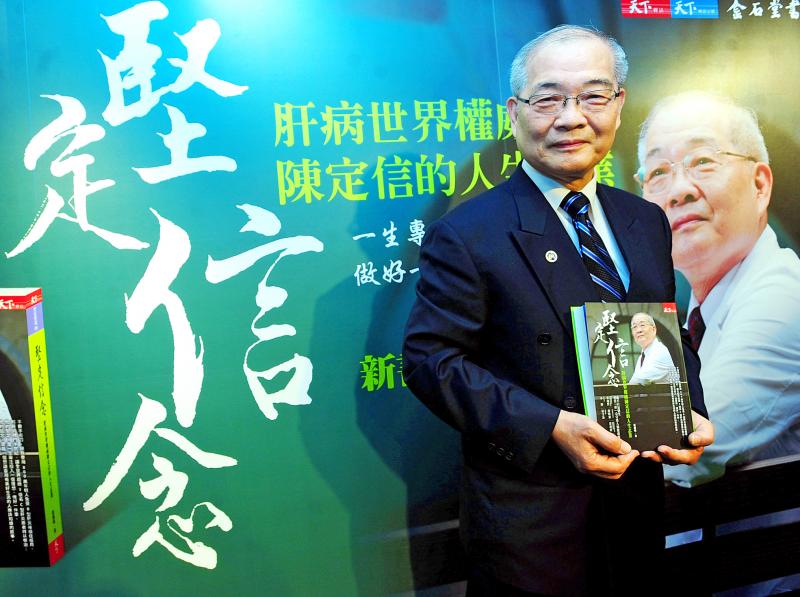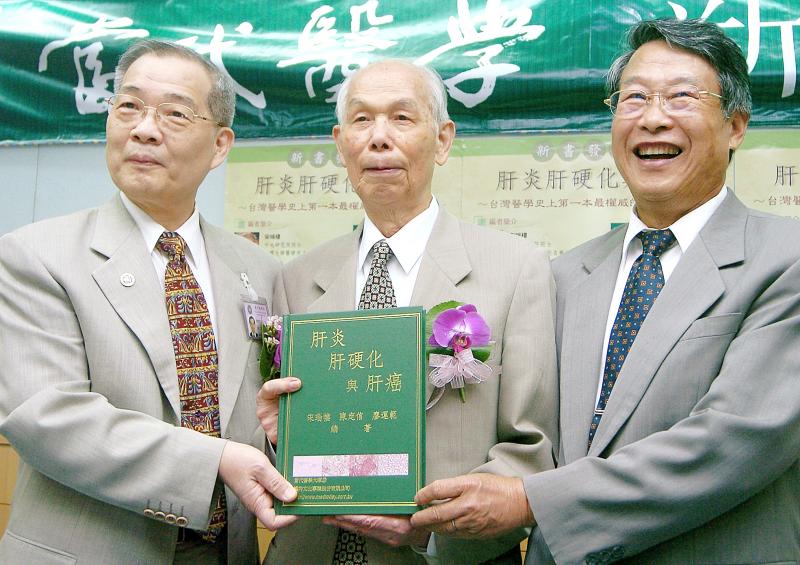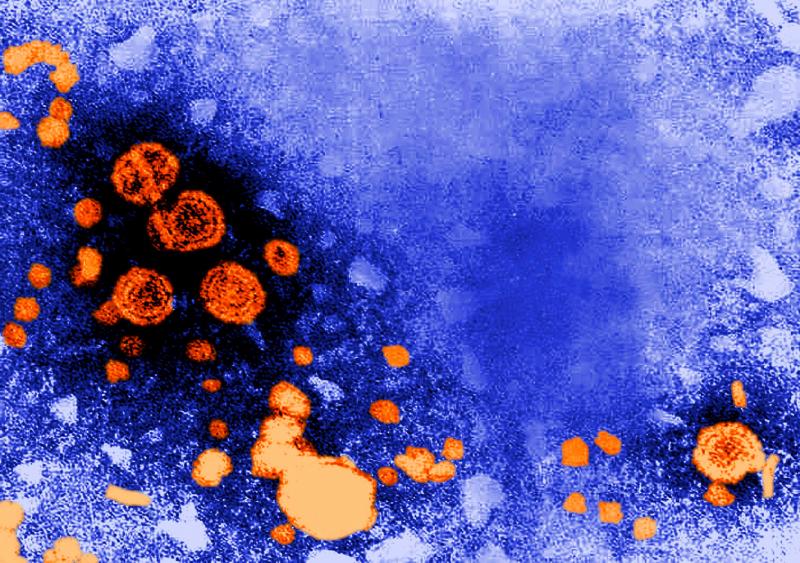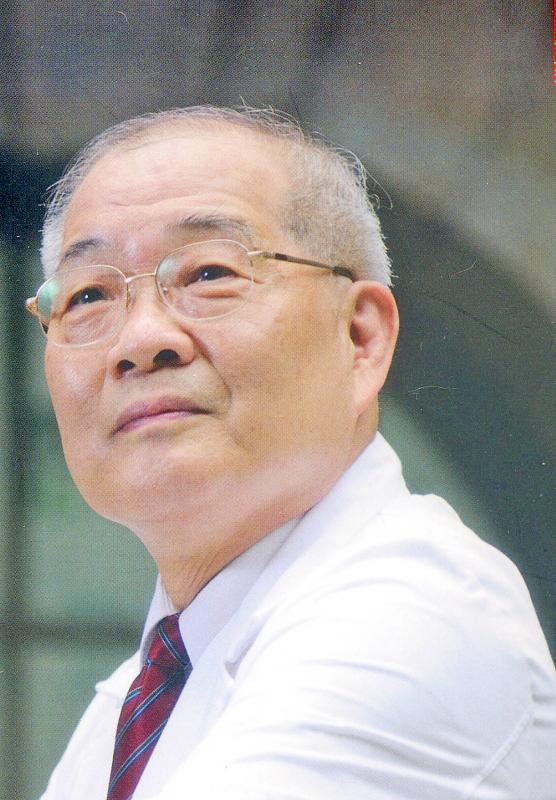Every time Chen Ding-shinn (陳定信) saw a liver cancer patient in his ward, it reminded him of his father, who died from the disease at the age of 49. Historically, Taiwanese suffered from an unusually high prevalence of liver ailments as well as cancer, and Chen was troubled by the number of terminal patients.
After decades of research, Chen and other experts found that Taiwan had the highest percentage of hepatitis B carriers in the world, which often developed into cirrhosis and cancer. In the early 1980s, he served as a key member of the Hepatitis Prevention Council (肝炎防治委員會), which helped Taiwan become the first country in the world to implement a nationwide hepatitis B vaccination program.
All newborns in Taiwan were vaccinated in 1986 — six years before the WHO recommended that all countries integrate the vaccine into their national immunization programs. According to the book Hepatitis Combat (肝炎聖戰), today over 179 countries follow the recommendation.

Photo: Wang Yi-sung, Taipei Times
Chen died on June 24 of pancreatic cancer at the age of 76. The nation mourned him as the “Liver King” (肝帝, homophonous to the Mandarin pronunciation of Gandhi) and thanked him for saving the lives of generations of Taiwanese.
NATIONAL DISEASE
Medical experts during the Japanese era already noticed an unusually high occurrence of liver ailments among Taiwanese. But they never found the cause.

Photo: CNA
Chen was born in 1943 in today’s Yingge District (鶯歌), New Taipei City. During his fourth year at National Taiwan University’s College of Medicine, his father was diagnosed with liver cancer, which was considered Taiwan’s “national disease” and leading cause of death at the time.
Today, it has been proven that the most common risk for liver cancer is chronic infection of hepatitis B or C, but that connection had yet to be made. In the 1950s, most experts believed that liver disease was caused by parasites and poor diet. But little changed as Taiwan’s standard of living improved in the 1960s.
“Most people had enough to eat by then, and other infectious diseases had subsided. But why was liver disease still on the rise?” hepatitis research pioneer Lo Kuang-jui (羅光瑞) recalls in Hepatitis Combat.

Photo: Liu Hsin-de, Taipei Times
“I’ve already started studying to be a doctor, why couldn’t I still save my father?” Chen lamented in a biography about his life, Unwavering Conviction (堅定信念), by Goya Lan (藍麗娟). During his clinical clerkship, he saw countless terminal liver cancer patients, many of them men in their 40s and 50s. He thought about the families like his that were traumatized by liver cancer, and vowed to find a solution.
Chen became a star pupil of National Taiwan University (NTU) College of Medicine professor Sung Juei-low (宋瑞樓), who in 1954 became the first physician in Taiwan to conduct a liver biopsy using a needle, demonstrating the existence of the hepatitis virus.
Sung is also known for conducting the very first endoscopy in Taiwan among other pioneering achievements. While Chen is the “Liver King,” Sung is remembered as the “Father of liver disease research.”

Photo: Lin Hsin-han, Taipei Times
Though Chen could have opened his own practice, he opted to stay at NTU after completing medical school to continue his research on liver cancer.
“I’ve never seen such a busy, tired, yet poor doctor,” he recalls relatives saying.
Chen and Sung would work closely together over the years as one of three teams in Taiwan focusing on liver disease. The other two were headed by Lo and the US Naval Medical Research Unit Two. Not only did they prove that Taiwan had the highest percentage of hepatitis B carriers in the world, they also found evidence directly linking hepatitis to liver cancer. Now Chen understood why so many people suffered from the disease.

Photo courtesy of Erskine Palmer via Pixnio
Centers of Disease Control (CDC) statistics from the 1980s show that prior to the vaccination program, 90 percent of the population had been infected with hepatitis B at some point before they turned 40, with 18 to 20 percent being carriers. By comparison, the US only had 1 percent. While the virus has historically been more prevalent in Asia than in the West, experts are still unsure why the numbers in Taiwan were this high.
NATIONAL VACCINE
After finding that mothers who were hepatitis B carriers had a 70 percent chance of passing on the virus to the child, Chen and Sung were firmly convinced that the most effective way to combat the virus was to vaccinate newborns as soon as possible. Starting in 1978, the two tirelessly persuaded the government to take measures to curb the virus.

Photo courtesy of Chung Hwa Rotary Foundation
Meanwhile, American physician and epidemiologist R Palmer Beasley arrived in Taiwan in 1972 to conduct research on hepatitis B as part of the US Navy medical team. In 1980, he proposed to test the vaccine on children in the Taipei area. They chose Taiwanese instead of American babies due to the nation’s much higher prevalence of carriers.
However, this caused a stir in society and led to headlines like: “Are the Americans using Taiwanese children as guinea pigs?” Others accused the proponents of pushing this program to further their medical career.
Academics were also divided on the issue.
Things only got going when Beasley convinced then-premier Sun Yun-suan (孫運璿) to support the project.
“This project is too important to Taiwan,” Sun reportedly said after Beasley’s 30-minute presentation. “We have to do this.”
Public resistance remained, especially over the safety of the vaccine in light of the AIDS epidemic. In 1981, the Department of Health (today’s Ministry of Health and Welfare) finally gave the green light.
The test results were encouraging, Sung recalls in Hepatitis Combat, and the government managed to convince the skeptical public of the importance of vaccination.
The Department of Health in 1982 launched the Hepatitis Prevention Council (肝炎防治委員會), which included Sung and Chen. Chen’s wife Hsu Hsu-mei (許須美), who worked for the Centers of Disease Control, was in charge of implementing the vaccination program.
Sung, Lo, Chen and other experts traveled the nation extensively to explain the importance of the vaccine to opposing experts, politicians, medical staff and the public. They frequently appeared on radio and television, and personally inspected any promotional material from the CDC. Chen says he got used to being yelled at during this time.
In July 1984, all newborns whose mothers were carriers received the vaccine, which was administered four times over one year. This was expanded to all newborns in 1986, and later children, relatives of carriers and medical personnel.
It worked. Twenty years later, the hepatitis rate in children covered by the program dropped by 85 percent. However, since there are still about 3 million existing carriers that were infected before the program launched, the disease remains a serious health issue.
Taiwan in Time, a column about Taiwan’s history that is published every Sunday, spotlights important or interesting events around the nation that either have anniversaries this week or are tied to current events.

Towering high above Taiwan’s capital city at 508 meters, Taipei 101 dominates the skyline. The earthquake-proof skyscraper of steel and glass has captured the imagination of professional rock climber Alex Honnold for more than a decade. Tomorrow morning, he will climb it in his signature free solo style — without ropes or protective equipment. And Netflix will broadcast it — live. The event’s announcement has drawn both excitement and trepidation, as well as some concerns over the ethical implications of attempting such a high-risk endeavor on live broadcast. Many have questioned Honnold’s desire to continues his free-solo climbs now that he’s a

As Taiwan’s second most populous city, Taichung looms large in the electoral map. Taiwanese political commentators describe it — along with neighboring Changhua County — as Taiwan’s “swing states” (搖擺州), which is a curious direct borrowing from American election terminology. In the early post-Martial Law era, Taichung was referred to as a “desert of democracy” because while the Democratic Progressive Party (DPP) was winning elections in the north and south, Taichung remained staunchly loyal to the Chinese Nationalist Party (KMT). That changed over time, but in both Changhua and Taichung, the DPP still suffers from a “one-term curse,” with the

Jan. 26 to Feb. 1 Nearly 90 years after it was last recorded, the Basay language was taught in a classroom for the first time in September last year. Over the following three months, students learned its sounds along with the customs and folktales of the Ketagalan people, who once spoke it across northern Taiwan. Although each Ketagalan settlement had its own language, Basay functioned as a common trade language. By the late 19th century, it had largely fallen out of daily use as speakers shifted to Hoklo (commonly known as Taiwanese), surviving only in fragments remembered by the elderly. In

Lines between cop and criminal get murky in Joe Carnahan’s The Rip, a crime thriller set across one foggy Miami night, starring Matt Damon and Ben Affleck. Damon and Affleck, of course, are so closely associated with Boston — most recently they produced the 2024 heist movie The Instigators there — that a detour to South Florida puts them, a little awkwardly, in an entirely different movie landscape. This is Miami Vice territory or Elmore Leonard Land, not Southie or The Town. In The Rip, they play Miami narcotics officers who come upon a cartel stash house that Lt. Dane Dumars (Damon)